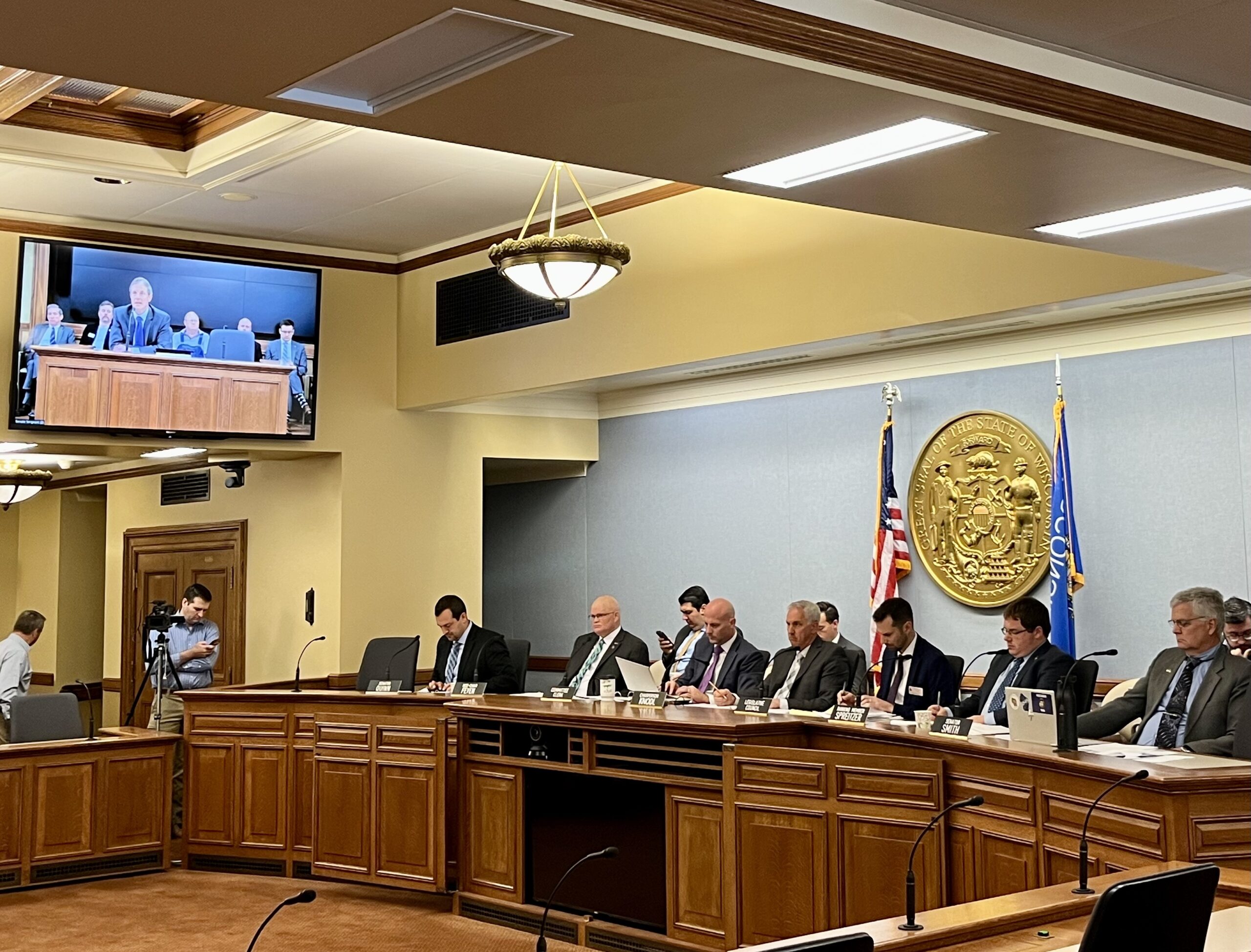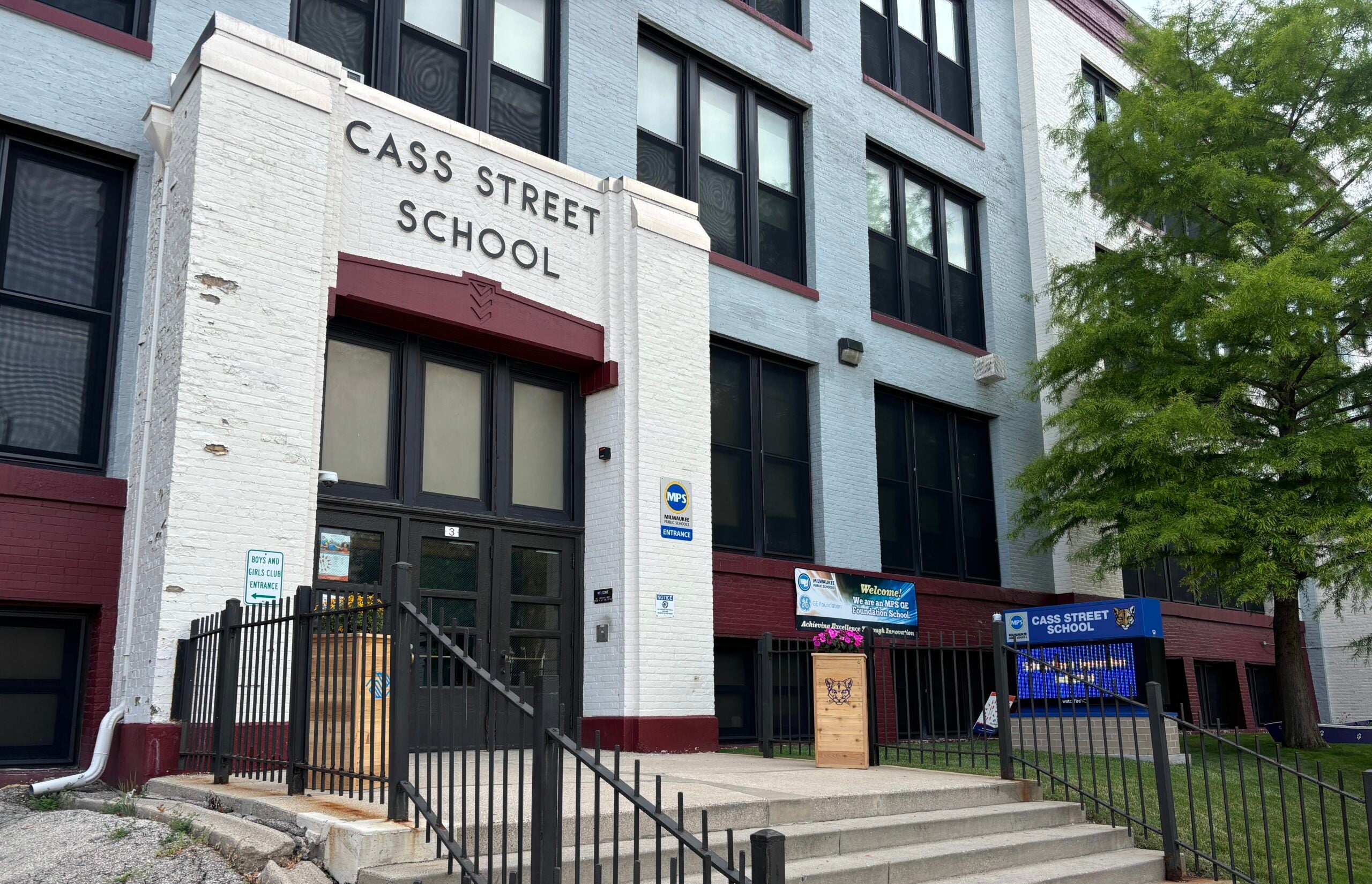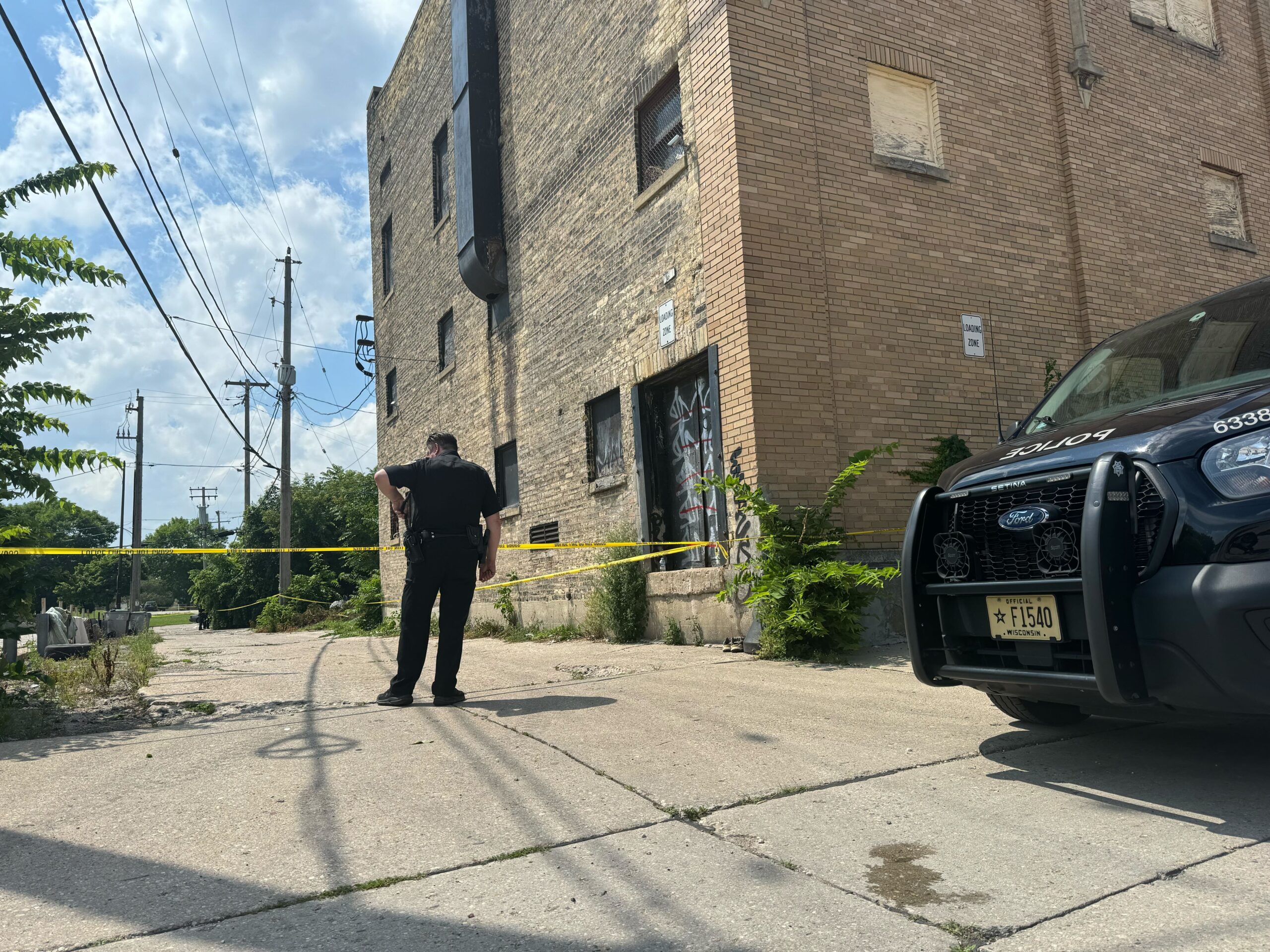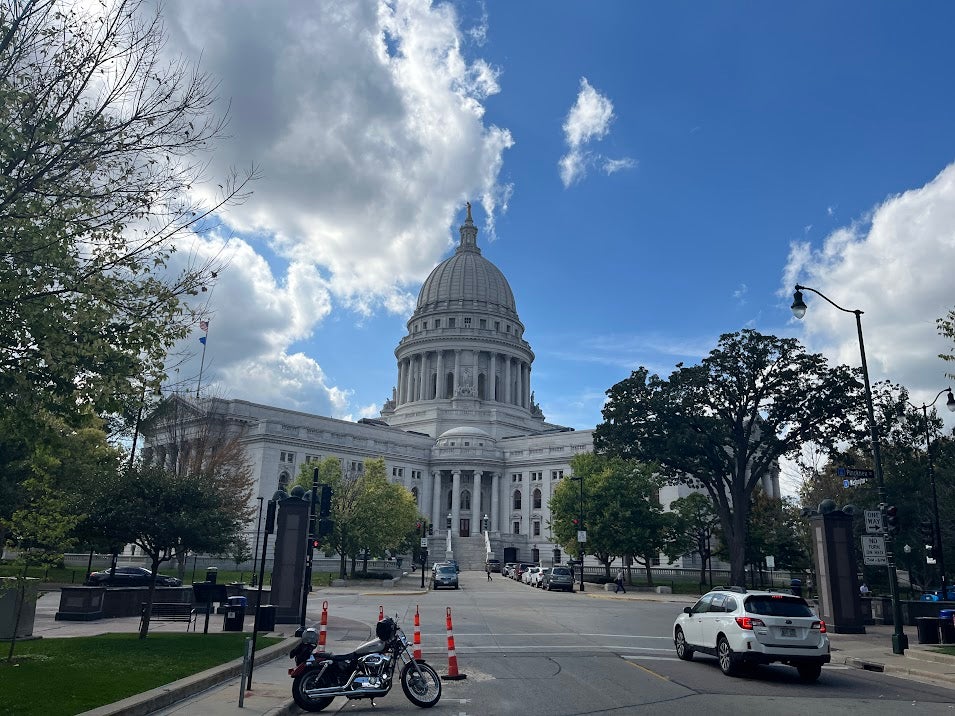A sweeping state shared revenue deal announced last week gives Milwaukee a chance to dig its way out of a pension crisis through a new sales tax. But it is still unclear whether the Milwaukee Common Council will approve the plan, which comes with strings attached.
At least one Milwaukee alder plans to vote against the sales tax increase. Another said she will vote to approve it even while protesting several Milwaukee-specific policy provisions included in the state plan to give a boost of cash to municipalities across the state. And several other alders released a statement denouncing those provisions, calling them “overreaching, micromanaging, and frankly racist.”
“I think we’re basically sunk,” Milwaukee Alder Bob Bauman, who plans to vote against the increase, said about the plan.
Stay informed on the latest news
Sign up for WPR’s email newsletter.
The bipartisan deal, announced last week by Republican legislative leaders and Democratic Gov. Tony Evers, still needs the approval of state lawmakers. The pact came after some Republicans, including Assembly Speaker Robin Vos, R-Rochester, dropped their insistence that the tax would need to be approved through a referendum.
The referendum requirement was a major point of concern for local leaders, as many thought voters wouldn’t approve the sales tax. The sales tax would bring a new influx of cash for the city — an estimated $193.6 million a year according to state estimates — allowing the city to address what local leaders have called a “crisis” regarding its budget.
The shared revenue agreement affects far more than Milwaukee. The deal would also boost state funding to local communities by at least 20 percent for almost every municipality, up from a 10 percent floor in the original bill introduced by Republicans and 15 percent in the plan that passed the state Assembly.

The deal comes with new stipulations on how Wisconsin’s largest city could use the funds and how local government is organized. The proposal includes a measure to bring armed police back into Milwaukee Public Schools, a ban on using state funding in the bill on Milwaukee’s streetcar and a requirement that any new spending would require a two-thirds vote of the council. It would also remove power from the city’s civilian police and fire commission.
The sales tax, which would go toward retiring pension debt, would need the approval of two-thirds of the Milwaukee Common Council, or 10 of council’s 15 members.
“As I have seen the content of this bill, especially the policy mandates and the poison pills, I cannot find myself voting for it,” Bauman added.
But the policy provisions for the city would go into effect even if the common council doesn’t approve the sales tax.
Alder Marina Dimitrijevic said she also doesn’t approve of many of those policy mandates from the state, but she said she plans to vote yes for the sales tax increase if it comes to the council.
“I am anxiously waiting for what I see as a generational opportunity that provides resources that we not only need, but deserve for the city of Milwaukee,” Dimitrijevic said.
One day after the proposal was announced, seven other alders on the Milwaukee Common Council released a statement pointing to concerns they had within provisions in the deal for Milwaukee.
“The policies the State has embedded into the shared revenue agreement encroach upon local control, and destroy much of the work we have done while handicapping Milwaukee’s ability to address the historic inequities that still exist,” the statement said.
Some of the provisions that concern those alders include transferring authority power for the “control and management of the police and fire departments” away from the Milwaukee Fire and Police Commission and back to Milwaukee’s fire chief and police chief, and prohibiting the city from funding positions to promote diversity, equity and inclusion.
The statement from the seven alders — Milele Coggs, Mark Chambers, Russell Stamper, Larresa Taylor, Andrea Pratt, Khalif Rainey and Lamont Westmoreland — encouraged the public to reach out to their representatives to share their concerns.
“A deal of this magnitude deserves thorough deliberation and research, and the citizens of Milwaukee need transparency,” the statement said. “We remain committed to addressing inequities, public safety challenges, and our financial condition with transparency, thorough research, and a level of empathy that the authors of this legislation did not have.”
Jeff Fleming, a spokesperson for Mayor Cavalier Johnson, said the mayor is optimistic the sales tax will be approved by the council. Fleming said the mayor and his team are “reaching out to Common Council members, answering questions, clarifying the record, and asking for support.”

A 2022 Wisconsin Policy Forum report pointed to an upcoming “day of reckoning” for Milwaukee’s finances as the combination of declining state aid, rising pension obligations and local revenue limits force city leaders to make tough budget decisions. The city has already had to make cuts to police staffing and eliminated fire stations in recent years.
Rob Henken, the president of Wisconsin Policy Forum, said he knows there are provisions that are “distasteful” to city officials. But without state aid, Milwaukee will be forced to make harsh budget cuts in 2025, Henken said. The city has already made several budget cuts in recent years, even as officials are using millions in American Rescue Plan Act funds to help delay some cuts.
“The question is, what would happen if they do now reject this package? Because clearly, they are facing a very ominous fiscal cliff in 2025,” Henken said.
According to the Wisconsin Policy Forum, Milwaukee is unique among dozens of peer cities because it does not have a sales tax as a source of revenue, or other forms of tax revenue beyond its property tax.
Phil Rocco is an assistant professor of political science at Marquette University who has been following the proposal. Milwaukee County’s sales tax could go up by 0.4 percent, up from 0.375 percent in earlier versions of the bill. That would also need to be approved by a two-thirds vote of the Milwaukee County Board of Supervisors.
“While I think it’s possible that there might be some opposition on common council or on county board to the passage of a sales tax, I think that the fiscal position that both the city and county are in, is going to make it more likely as must pass legislation,” Rocco said.
Kyle Johnson is the political director for Black Leaders Organizing Communities. He said he was disappointed when he saw the announcement last week.
“I don’t know how suddenly this deal is a good deal, because it’s a good deal for whom?” Johnson said.
Johnson also doesn’t approve of the sales tax increase for the city because he believes it would be an increased burden on residents who are struggling financially. About 24 percent of the city lives in poverty, according to the U.S. Census Bureau.
“I understand that the city has to find a way to raise money, but when it’s impacting people that are already scraping the bottom of the barrel to make ends meet, I can’t get behind that,” Johnson said.
Vaun Mayes, a community activist in Milwaukee, also spoke out against the provisions.
“Other people outside of Milwaukee got what they wanted and needed, and we got what somebody else wanted,” Mayes said.
Andrew Wagner, president of the Milwaukee Professional Police Association, said the bill stipulates that the Milwaukee Police Department has to maintain 1,725 sworn officers. That would be an increase of just over 100 officers.
Wagner approved of taking away the referendum as well, and he said he believed the council will pass the sales tax increase if it comes before them.
“We do understand the importance of putting the vote to taxpayers. But at the same time, this is something that’s dire in the city of Milwaukee, that really needs to be implemented as soon as possible,” Wagner said. “We also recognize that the best route for this might be through the common council.”
Wagner also said Milwaukee police respond to Milwaukee Public Schools hundreds of times each semester.
“Why not make sure that those police officers that are responding to the schools, for those calls of service, are trained to deal with the kids, to that student population?” Wagner said.
Wisconsin Public Radio, © Copyright 2025, Board of Regents of the University of Wisconsin System and Wisconsin Educational Communications Board.





